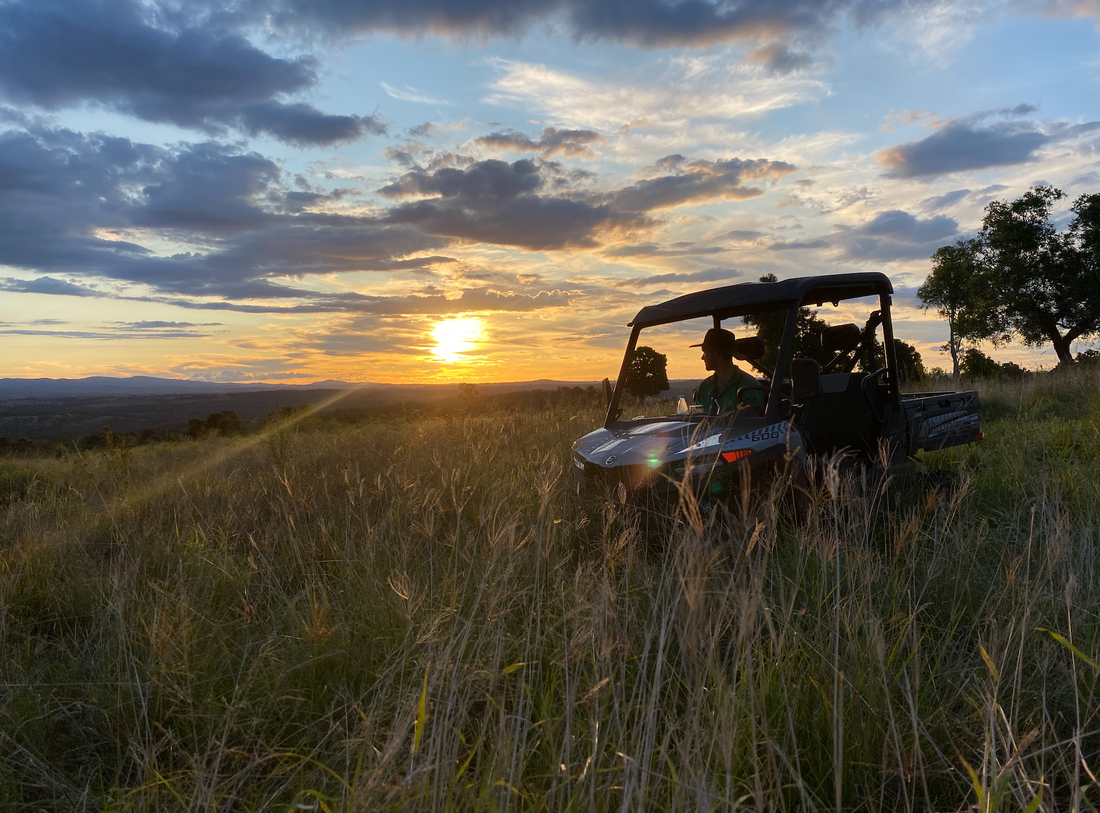We are here to challenge a common misconception – the idea that weeds are inherently bad. Join us on this journey as we explore why weeds aren't villains on our regenerative farm; instead, they play essential roles in supporting biodiversity, soil health, and the overall resilience of our ecosystem.
1. Indicator of Soil Health:
Weeds often act as nature's messengers, providing valuable insights into the health of our soil. Certain weed species are indicators of specific soil conditions, such as nutrient levels, compaction, or pH. By understanding the language of weeds, we can adapt our farming practices to address underlying soil issues and promote a more balanced and fertile environment.
2. Biodiversity Boosters:
Contrary to the perception that all weeds are invasive and harmful, many actually contribute to the diversity of plant life on Firebreak Farm. Diverse plant species create a more resilient and adaptable ecosystem, attracting a variety of beneficial insects, birds, and microorganisms. Embracing this diversity fosters a healthier balance within our farming ecosystem.
3. Dynamic Cover Crop:
Some plants labeled as "weeds" play a crucial role as dynamic cover crops. These plants have deep root systems that help break up compacted soil, improve water infiltration, and enhance nutrient cycling. Instead of viewing them as nuisances, we recognise their contribution to building healthier soil and promoting a more robust farming environment.
4. Natural Soil Stabilisers:
Certain weed species, with their extensive root systems, act as natural soil stabilisers. Their presence helps prevent erosion by binding the soil, especially in areas prone to water runoff. By allowing these weeds to grow strategically, we create a natural defence against soil erosion and contribute to the overall stability of the land.
5. Pollinator Havens:
Weeds, often dismissed as unwanted intruders, can be essential sources of nectar and pollen for pollinators. Bees, butterflies, and other beneficial insects rely on the diverse array of flowering plants, including some considered weeds, to sustain their populations. Supporting these plants means supporting the broader health of our ecosystem.
6. Adaptability and Resilience:
Weeds are opportunistic and adaptable, thriving in a variety of conditions. Rather than viewing this adaptability as a challenge, we see it as a testament to nature's resilience. By working with nature rather than against it, we harness the inherent strengths of these plants to create a more robust and sustainable farming system.
On Firebreak Farm, we celebrate the intricacies of nature and challenge the notion that weeds are adversaries. Instead, we recognise their value as allies in our regenerative journey. By understanding and working with the natural roles of these plants, we foster a more resilient, biodiverse, and sustainable farming ecosystem.

